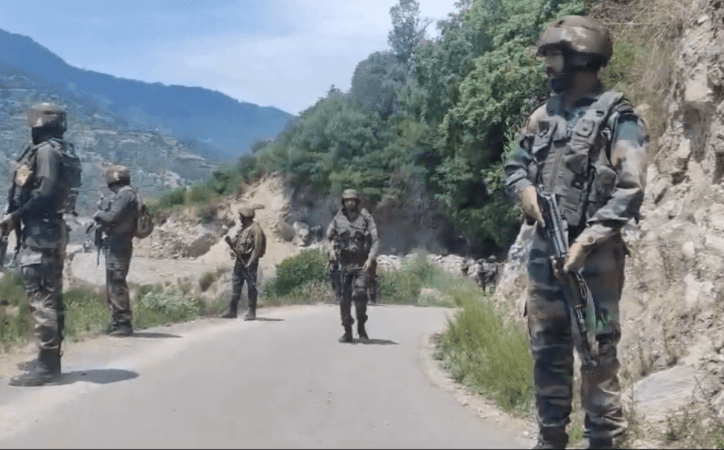
After repeated terror attacks in Jammu province, Jammu and Kashmir's Lieutenant Governor Manoj Sinha and Army Chief General Upendra Dwivedi held two separate joint security review meetings in Jammu on Saturday to introduce a new counter-terrorism strategy. This strategy aims to address operational flaws, intensify counter-terrorist operations, and track down hiding terrorists with active support from locals.
General Dwivedi arrived in Jammu at 2:30 PM and chaired the first security review meeting at the Police Headquarters, which concluded at 4 PM. Following this, another security review meeting took place at Rajbhawan, Jammu, chaired by LG Manoj Sinha at 4:30 PM.
Both meetings included key security officials such as Director General of Police (DGP) RR Swain, DG BSF, DG CRPF, heads of intelligence agencies, and other senior officials from the army, Central Armed Police Forces (CAPFs), and Jammu and Kashmir Police.

Jammu region witnesses repeated terror attacks
These security reviews come in the wake of a deadly terrorist ambush in the Doda district on July 16, which resulted in the deaths of five soldiers and injuries to several others. Prime Minister Narendra Modi had earlier chaired a meeting of the Cabinet Committee on Security on July 14, which was followed by Union Home Minister Amit Shah's comprehensive security review focusing on the surge in terrorist activities in Jammu.
An official statement noted that LG Sinha chaired a high-level meeting with the Army Chief and various heads of security and law enforcement agencies at Rajbhawan, Jammu.
The statement emphasized the need for proactive and coordinated counter-terrorism operations in the Jammu Division. "We must launch meticulous and well-planned counter-terrorism operations with greater synergy between all agencies to eliminate terrorists and their supporters," the statement quoted the LG.
Additionally, LG Sinha directed that the security grid be further strengthened to ensure zero cross-border infiltration.
During the earlier meeting at PHQ Jammu, security officials discussed the modus operandi of terrorists operating in Jammu, their infiltration routes, and the possibility of new tunnels along the International Border. They also examined routes used by foreign terrorists to enter Jammu via the Punjab border.
General Dwivedi stressed the importance of well-coordinated efforts to address new terror challenges in the Jammu region while minimizing casualties among security forces. Over the past 32 months, 41 soldiers have been killed in Jammu in various terrorist attacks, raising significant security concerns.
The meetings focused on identifying and addressing operational flaws, intensifying counter-terrorist operations, and implementing a renewed strategy. It was also decided to target the terror-eco system and terrorist sympathizers strictly and maintain close surveillance on former terrorists and Over Ground Workers (OGWs).















